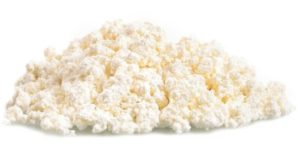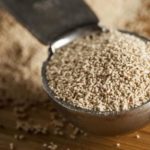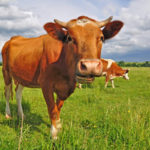Interesting facts about curd
 Cottage cheese is a product extremely useful. Not all of them seem tasty, but to include it in your diet at least from time to time – the idea is excellent. Its use in food contributes to the normalization of many functions of the body, in addition, from cottage cheese you can cook a lot of delicious dishes.
Cottage cheese is a product extremely useful. Not all of them seem tasty, but to include it in your diet at least from time to time – the idea is excellent. Its use in food contributes to the normalization of many functions of the body, in addition, from cottage cheese you can cook a lot of delicious dishes.
The word “cottage cheese” in literal translation from the Old Slavonic language means “milk made solid”.
Although in the Russian language the words “cottage cheese” and “cheese” mean different products, in many Slavic languages these are synonyms. For this reason, products from cottage cheese are sometimes called “cheese” – for example, cheese cakes.
In the western countries, cottage cheese is considered a sort of young cheese.
Cottage cheese is one of the richest sources of protein and calcium, but there are practically no vitamins in it.
Scientists have proved that people absorb cottage cheese much easier than whole milk.
Cottage cheese is recommended for those who want to lose weight, as it improves the metabolism of fats in the body, helps in the treatment of heart and liver diseases.
Curd stimulates the formation of hemoglobin in the blood, increases the ability of the nervous system to regenerate and strengthens the bones.
In the first centuries of Christianity, his adherents were forbidden to eat curd in the summer.
In the center and in the north of Russia for Easter it is customary to prepare a special dish of cottage cheese, which must be consecrated in the church.
Cottage cheese was loved already in ancient Rome – it was added salt, honey or used as a snack for wine.
In India during the celebrations in honor of the god Krishna was ordered to break the pot with cottage cheese – it was believed that this ritual brings good luck.
To produce one and a half kilograms of cottage cheese, 10 liters of milk are needed.
Scientists have proved that the regular consumption of curd in the food prevents the occurrence of breast cancer.
Cottage cheese is a healthy but high-calorie product, so it is better to eat it at least 3 hours before bedtime.
In the distant past people harvested for the winter the pressed cottage cheese, which for a long time preserved its useful properties. It was so hard that the curds sometimes cut out buttons from the curds.
Cottage cheese should not be frozen, otherwise it will become tasteless and almost useless for health.
Even a small portion of cottage cheese, eaten at breakfast, helps people better cope with stress and reduces anxiety.
Homemade cottage cheese can be cooked in a few minutes – just add a few spoons of lemon juice to the boiled milk.
American President Richard Nixon, according to his biographers, adored eating cottage cheese with ketchup.
Cottage cheese can be stored in the refrigerator for no longer than 3 days.
Despite the benefits of cottage cheese, doctors do not recommend eating more than 200 grams of this product a day, so as not to upset the salt balance in the body.
Cottage cheese on an industrial scale in Russia began to be produced only in the late 19th century.
Cottage cheese quickly develops dangerous fungi and bacteria, so if you have any doubts about its freshness, curd is better not to eat – even a spoon of a spoiled product threatens with serious poisoning.



























